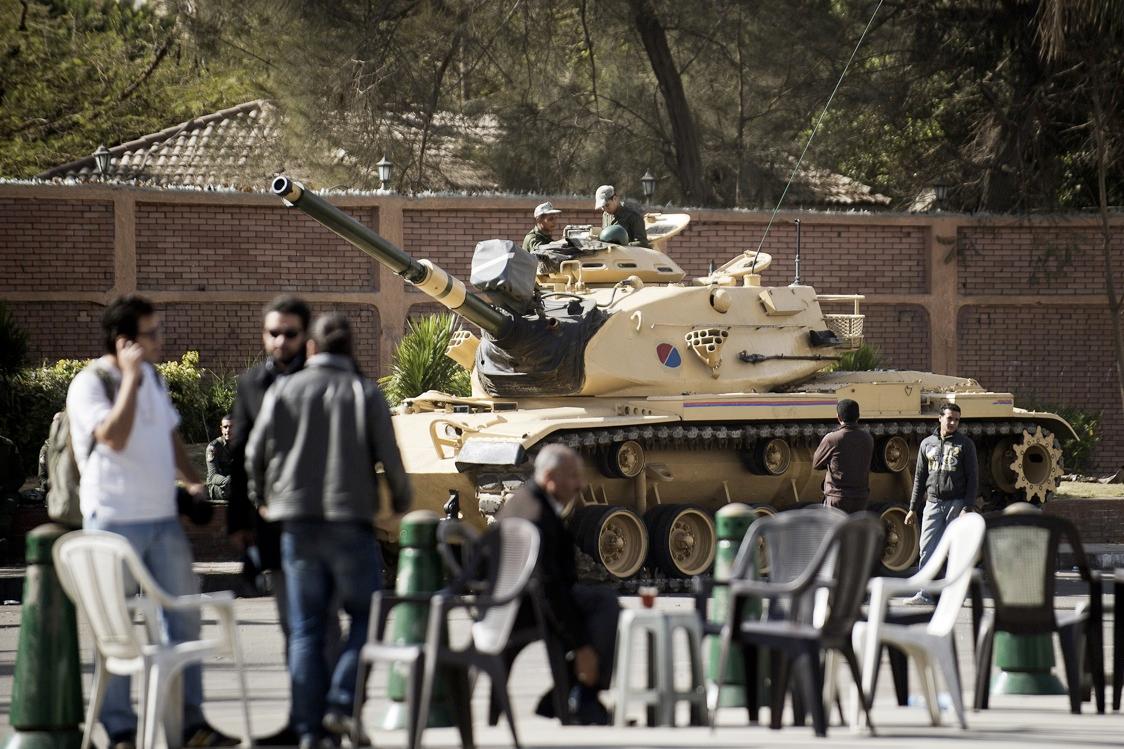Egypt: Morsi gives army new powers ahead of controversial referendum
Egyptian President Mohamed Morsi has given the armed forces powers to arrest civilians, as part of efforts to “preserve security” ahead of a controversial referendum on Dec. 15.
Egyptian President Mohamed Morsi has given the armed forces new powers previously reserved for the police, to enable them to "preserve security" ahead of a controversial referendum on a new constitution.
Notably, military officers now have the authority to arrest civilians.
In a decree issued late Sunday night and obtained by Agence France Presse, Morsi ordered the army to cooperate with police "to preserve security and protect vital state institutions for a temporary period, up to the announcement of the results from the referendum."
Reuters noted that the move, however temporary, will inevitably revive memories of the long-standing emergency laws introduced under Hosni Mubarak, which allowed military or state security courts to try thousands of political dissidents.
A presidential spokesman denied that the decree was a step toward martial law, however, telling the Associated Press that it simply extended "legal cover for the armed forces while they are used to maintain security."
Another spokeman, Khaled Al-Qazzaz, on Monday took pains to distinguish Morsi's actions from previous periods of martial law, according to The New York Times.
“This is very different from what happened under the SCAF,” Qazzaz said, according to The Times, referring to the armed forces that ruled the country after Mubarak's ouster. He explained, "Anyone arrested will be referred to a normal judicial process and it will go to a normal civilian court. There will be no military trials.”
More from GlobalPost: Morsi annuls decree, but controversial vote still stands
The referendum is scheduled for Dec. 15, though opposition leaders have called for protests all this week in a bid to ensure it doesn't go ahead.
Morsi's opponents are demanding that the draft constitution be revised to represent the interests of liberals, secularists, Christians and other groups who complain they didn't have a say in the current version.
"Why should we make the people swallow a constitution that could have been much better and should have been much better?" leading opposition figure Amr Moussa told the BBC today.
Egypt's leading opposition coalition, the National Salvation Front, is still debating whether to tell its supporters to vote no or to boycott the referendum altogether, a spokesman told the AP.
In a decision that could boost the referendum's legitimacy, the body that represents Egyptian judges, the Judges' Club, said that it would agree to oversee the vote — so long as Morsi's supporters end their sit-in outside the Supreme Constitutional Court, which has been out of session for more than a week due to the "psychological pressure."
Judges had previously refused to supervise the referendum over Morsi's decision to award himself new powers, which he has since rescinded.
In another concession, Ahram Online reported that the president on Sunday cancelled a tax increase on soft drinks, alcohol, cigarettes and other items, just hours after he had announced it. The AP speculated that the U-turn could be an attempt to boost the chances of the draft constitution being approved in the referendum.
Meanwhile, protests are set to continue: both the National Salvation Front and Morsi's Muslim Brotherhood party have called for mass rallies in Cairo on Tuesday, AFP reported.
More from GlobalPost: An Islamic Egypt: not so inevitable anymore?
We want to hear your feedback so we can keep improving our website, theworld.org. Please fill out this quick survey and let us know your thoughts (your answers will be anonymous). Thanks for your time!
